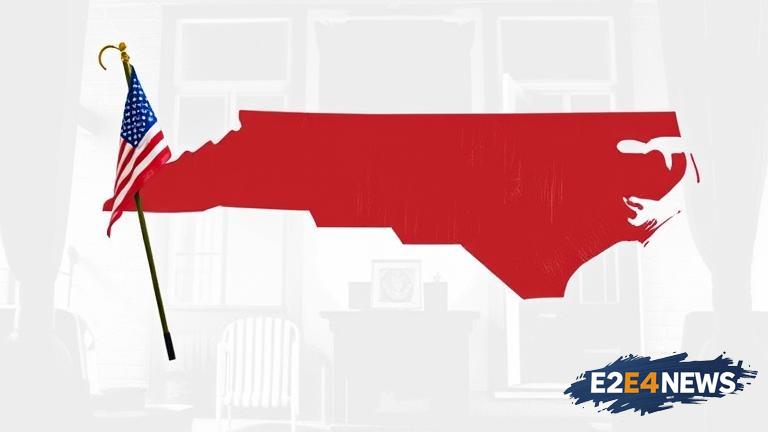North Carolina Republicans are gearing up to override a veto of school choice legislation, which includes a federal tax credit program aimed at providing more educational options for families. The legislation, which was vetoed by Governor Roy Cooper, a Democrat, would establish a program allowing individuals and businesses to receive tax credits for donating to organizations that provide scholarships to low-income students. This move is seen as a significant step towards expanding school choice in the state, giving families more freedom to choose the best educational setting for their children. The school choice movement has been gaining momentum in recent years, with many states implementing similar programs to increase access to quality education. Proponents of the legislation argue that it would help level the playing field for low-income students, who often lack access to quality educational resources. By providing tax credits to donors, the program would incentivize private investment in education, ultimately benefiting students who need it most. The federal tax credit program is modeled after similar initiatives in other states, which have shown promising results in increasing educational opportunities for disadvantaged students. However, critics of the legislation argue that it would divert funds away from public schools, which are already struggling to meet the needs of their students. They also express concerns that the program would lack accountability and oversight, potentially leading to abuse and mismanagement of funds. Despite these concerns, Republicans in the state legislature remain committed to overriding the veto and implementing the school choice legislation. They argue that the program would be a vital step towards improving educational outcomes in the state, particularly for low-income and minority students. The override effort is expected to be a contentious issue, with Democrats and education advocacy groups likely to oppose the move. The school choice debate has been a longstanding issue in North Carolina, with proponents and opponents deeply divided on the matter. As the state legislature prepares to vote on the override, educators, parents, and community leaders are watching closely, eager to see how the outcome will impact the state’s educational landscape. The legislation has sparked a broader conversation about the role of government in education, with some arguing that it should play a more limited role in providing educational options. Others contend that the government has a responsibility to ensure that all students have access to quality education, regardless of their background or socioeconomic status. The school choice movement has also raised questions about the effectiveness of traditional public schools, with some arguing that they are failing to meet the needs of many students. As the debate continues, it is clear that the outcome of the override effort will have significant implications for the future of education in North Carolina. The state’s educational system has faced numerous challenges in recent years, including funding shortfalls, teacher shortages, and inadequate resources. The school choice legislation is seen as a potential solution to some of these problems, but its implementation is likely to be complex and contentious. Ultimately, the success of the program will depend on its ability to provide meaningful educational opportunities for students, while also ensuring that public schools receive the funding and support they need to thrive. The override effort is expected to be a closely watched event, with implications for education policy and politics in North Carolina and beyond. As the state legislature prepares to vote, educators, parents, and community leaders are urging lawmakers to consider the potential consequences of their actions, and to prioritize the needs of students above all else. The school choice debate is a complex and multifaceted issue, with no easy solutions or answers. However, by working together and engaging in constructive dialogue, it is possible to create a more equitable and effective educational system that serves the needs of all students. The future of education in North Carolina hangs in the balance, and the outcome of the override effort will be a crucial step towards determining the direction of the state’s educational system. The legislation has the potential to be a game-changer for many students, providing them with access to quality educational resources and opportunities that they may not have otherwise had. However, it is also important to consider the potential risks and challenges associated with the program, and to ensure that it is implemented in a way that is fair, equitable, and effective. The school choice movement is a national issue, with many states grappling with similar debates and challenges. The outcome of the override effort in North Carolina will be closely watched by educators, policymakers, and community leaders across the country, and will likely have implications for education policy and politics at the national level. The legislation is a testament to the enduring power of the school choice movement, which has been driven by a diverse coalition of educators, parents, and community leaders. As the debate continues, it is clear that the school choice movement will remain a major force in shaping the future of education in North Carolina and beyond. The override effort is a critical moment in the school choice debate, and its outcome will have significant implications for the future of education in the state. The legislation has the potential to be a major step forward for educational reform in North Carolina, but it is also important to consider the potential challenges and risks associated with its implementation. The school choice movement is a complex and multifaceted issue, and its outcome will depend on the ability of educators, policymakers, and community leaders to work together to create a more equitable and effective educational system. The future of education in North Carolina is uncertain, but one thing is clear: the school choice movement will continue to play a major role in shaping the state’s educational landscape for years to come.
